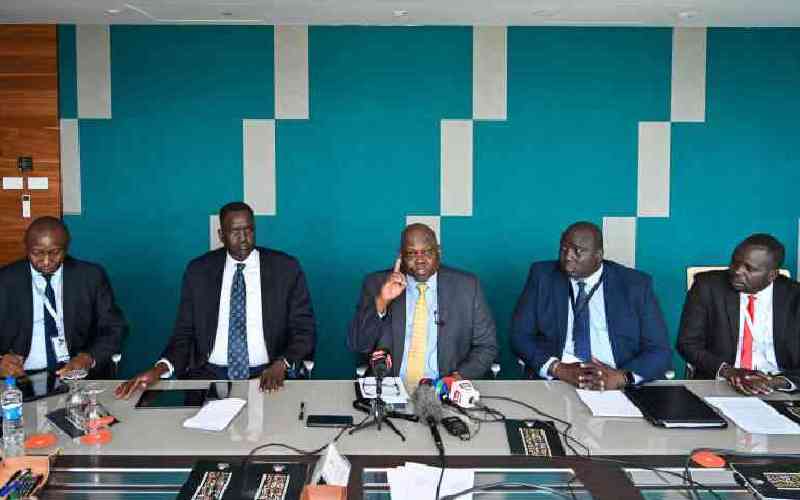×
The Standard e-Paper
Smart Minds Choose Us

South Sudan's President Salva Kiir held talks with political leaders to discuss the feasibility of holding long-delayed elections due to take place in December, his office said, as the United Nations again warned on Wednesday that time was running out.
The world's youngest country has yet to go to the polls, a full 13 years after its hard-fought independence from Sudan, to the frustration of its people and the international community.







